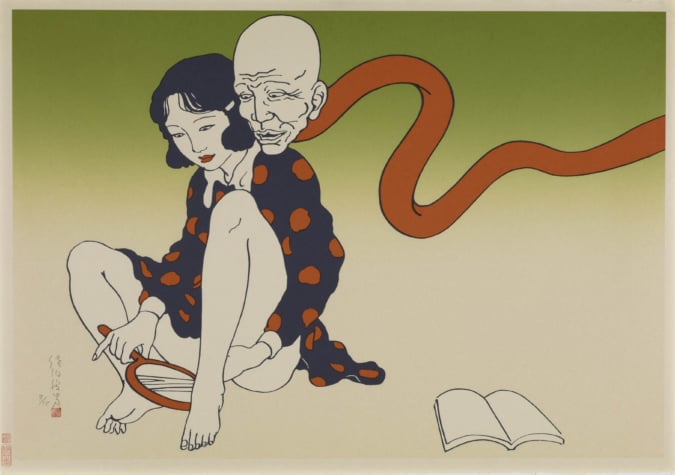A Stargazer’s Paradise Hidden Among the Tokyo Treasure Islands
Off the Southeast coast of mainland Japan lies the lush, mountainous island of Kouzushima. Just 45 minutes by plane from Tokyo (or three hours and 45 minutes by jet boat/a leisurely 12 hours by large passenger boat for those of us with good sea legs), Kouzushima is surrounded by turquoise waters. The island is as diverse as it is beautiful, from its super-white beaches, to its towering mountains, delicious cuisine, and unique shochu (distilled liquor). But above all else, the island prides itself on its reputation as being one of the very best places for stargazing in Japan.
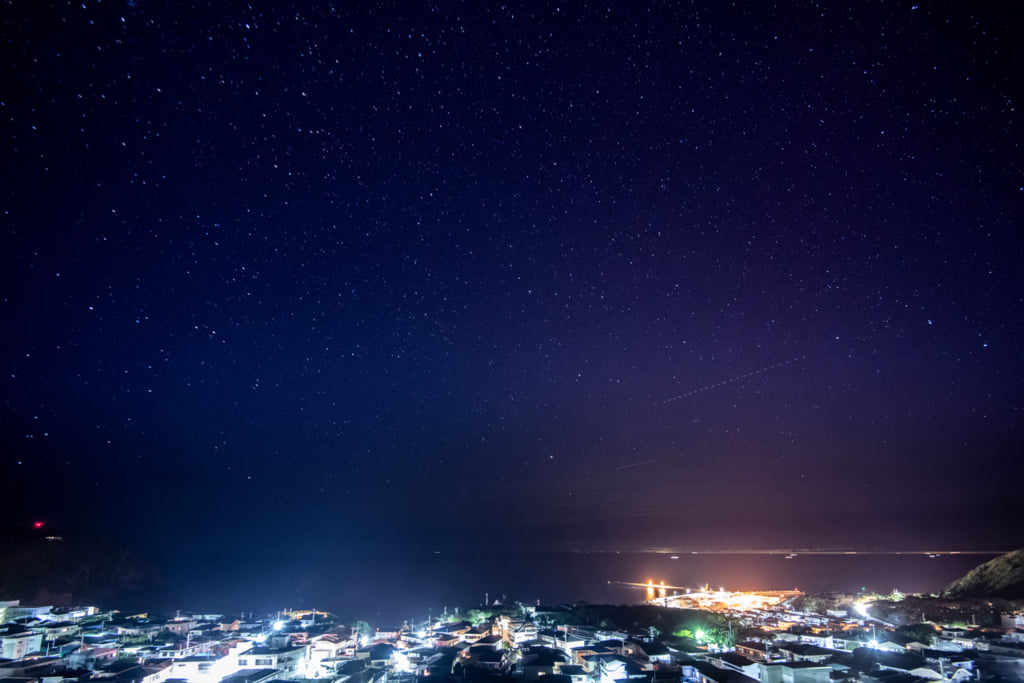
After dark, with your expert guide, take a short drive up the mountainside and park up at a look-out point. There are no streetlights this high up the mountain, and with the headlights off, there is nothing obscuring your view of the sparkling canopy of stars overhead. With his high-power torch, the guide points out the constellations and awes you with facts about the cosmos. The stars are so bright you can even distinguish different shades of red and white. It is hard to imagine that you are under the same sky as the dusky Tokyo nightscape.
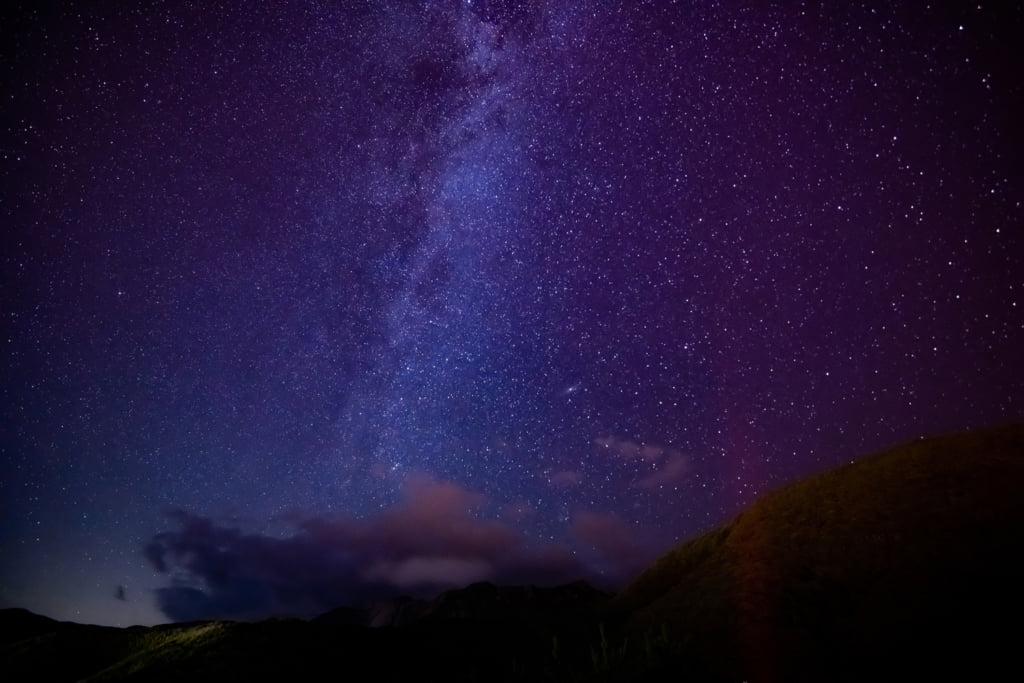
The island owes its stargazing reputation in part to the collaborative efforts of the islanders; driven by a mutual desire to keep the skies clear for this and the next generation, they have just started replacing the fluorescent light bulbs in the island’s street lamps with energy-saving ones to avoid light pollution. To enjoy the stars in true decadence, why not take a dip in the island’s hot spring bath, which has a large rotenburo (open-air bath), with mixed bathing for those who bring their swimwear, and watch the stars while soaking away your stresses.
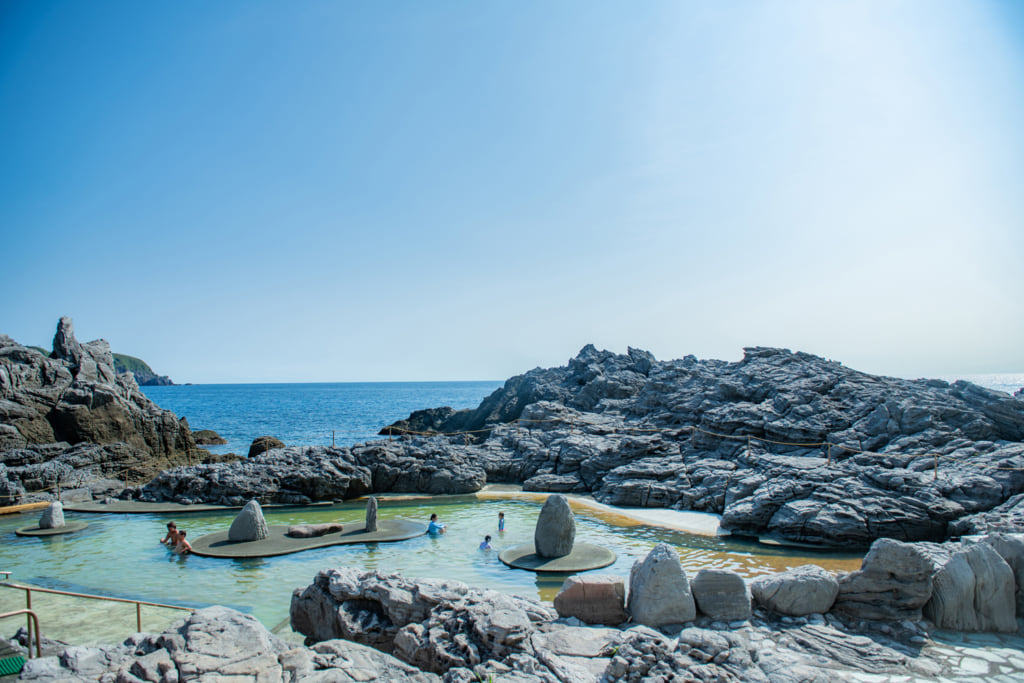
On the island’s coast, the beaches are snow-white in colour, and are stunning all year round. In summer, the invitation to jump into the crystalline turquoise water is at its most tempting at Akasaki Walking Path, where interconnecting wooden walkways and diving stations join the island’s cliffs to rock clusters in the sea, providing the perfect place to submerge oneself in this exceptionally clear seawater. For a better look at the beautiful, multicoloured fish and coral living in the pristine water, snorkelling is a good option, but for those who want to truly immerse themselves, the island has its own scuba diving school.
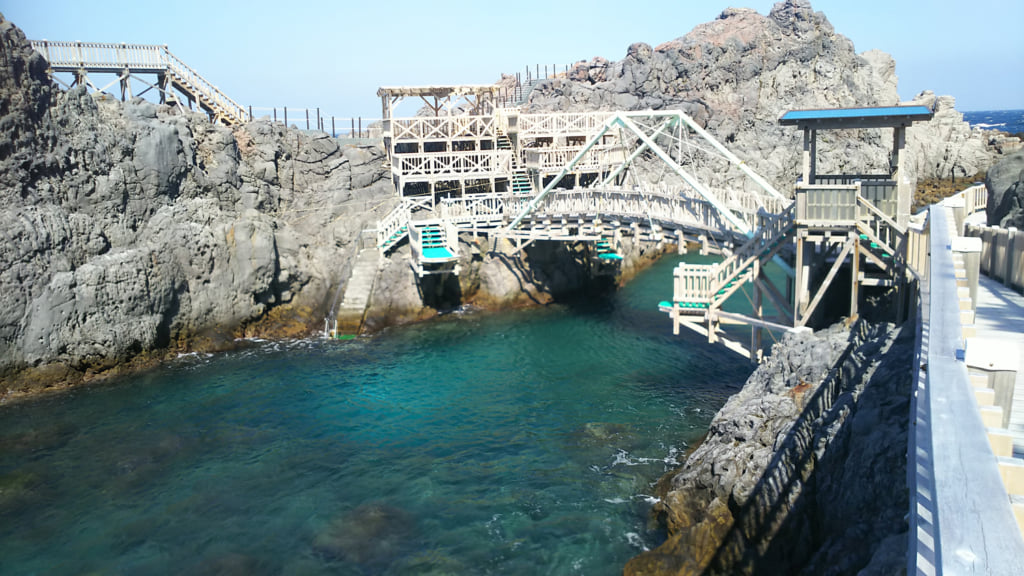
Another source of pride for the island is its abundance of kinmedai (splendid alfonsino). Something of a delicacy on the mainland and with a price tag to match, kinmedai can be found at the island’s marketplace or in its restaurants at a much more affordable price. It would be a shame to try kinmedai without also leaving room for some of the island’s unique, locally brewed Moriwaka – shochu brewed using the waters of the island itself.
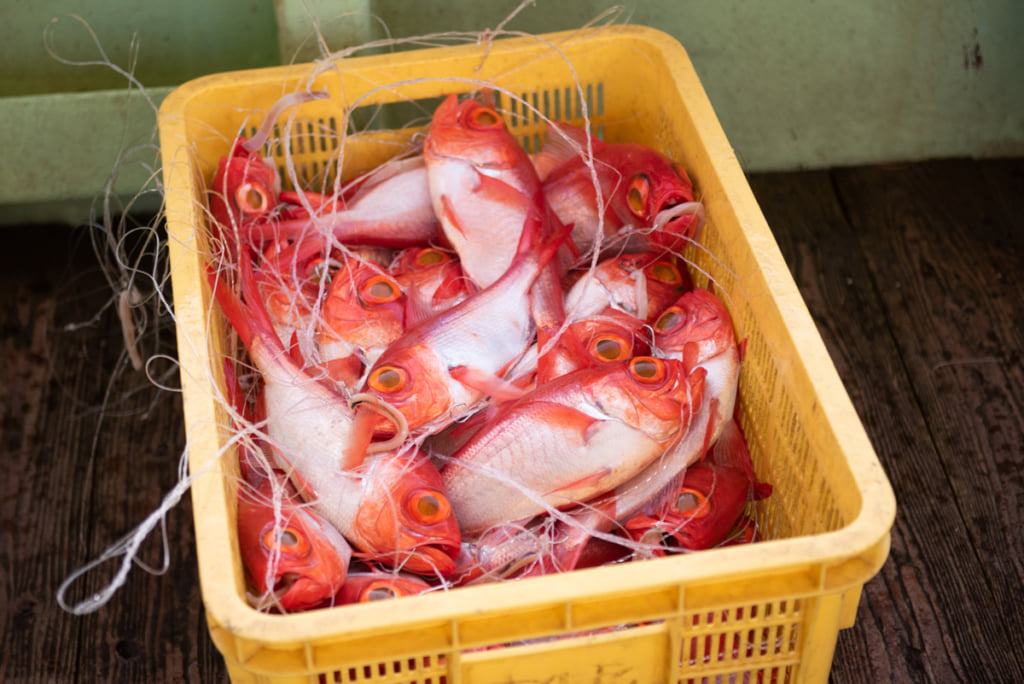
Travelling up the sloping sides of the island away from the excitement of the sea, the atmosphere becomes more subdued and reverent. There are many peaceful, religious monuments dotted around the island; Awanomikoto Shrine, Enmeizantoko Temple, and Julia’s Cross honour the Gods of Shintoism, Buddhism, and Christianity respectively. But to really visit the island’s deities, one must make the 3-4 hour hike up Mt. Tenjo. It is here that you can find the crater, Hairanaigasawa (hairanai meaning ‘unable to enter’ in English). Folklore has it that in this crater, in ancient times, the Izu Islands Gods would hold a council in order to divide water up among each island.
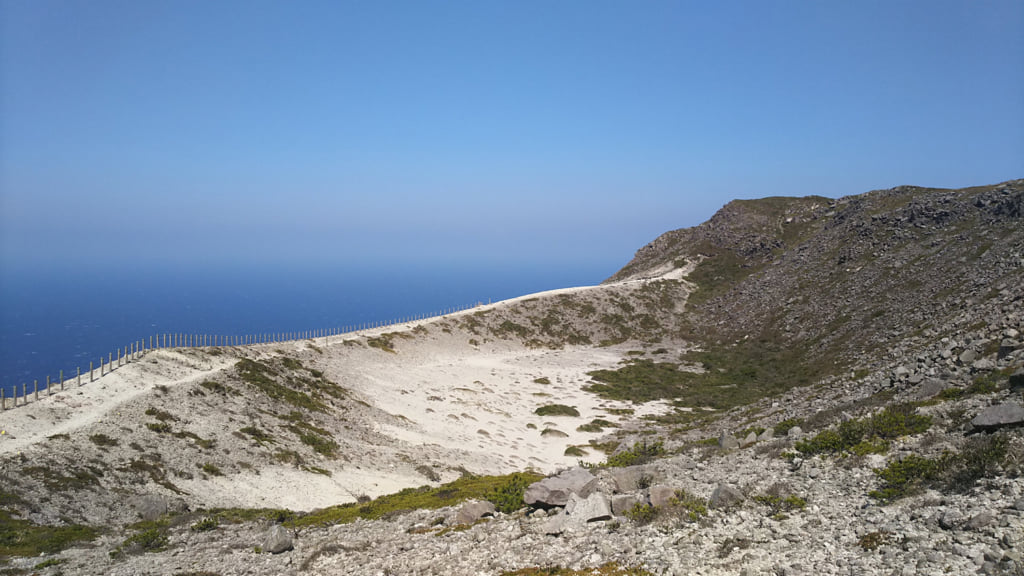
Walking around the Hairanaigasawa crater is an exhilarating experience when the winds are strong. You are virtually on the precipice of the mountain. A loop of the summit leads you towards the Ura-sabaku Sandy Soil (back sands). Suddenly, in stark contrast to the volcanic rock on the higher side of the summit, you come across a white plain with sands so soft and white that it is hard to believe you are nearly 600 metres above the beaches below. From the highest point, looking around you with the coast in all directions, you might be on top of the world.
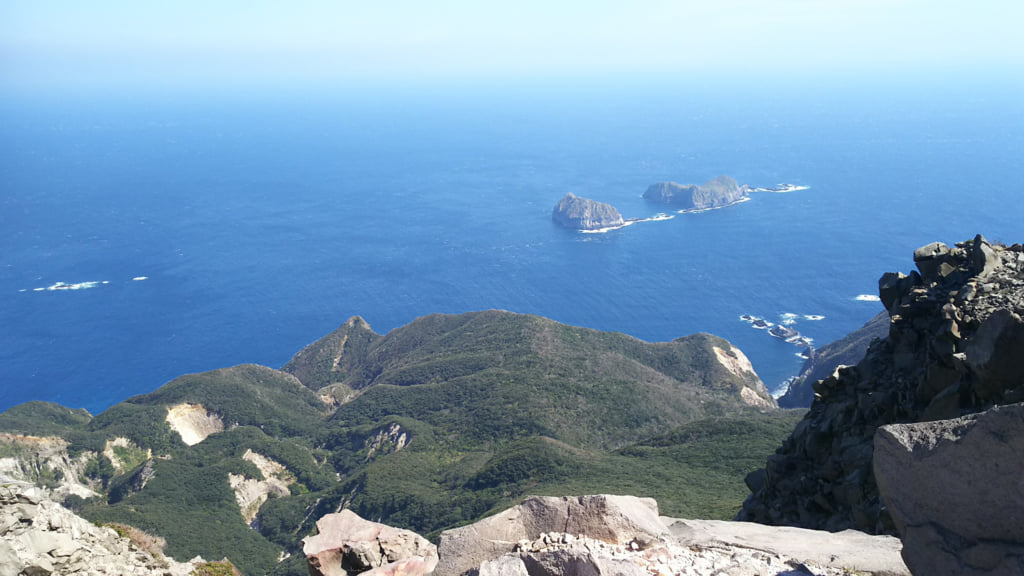
TRENDING
-
A House from the Taisho Era Reveals Its Secrets
While visiting an abandoned building, Hamish Campbell discovered photographs the owner had taken of the place in the 1920s.

-
The Taboo-Breaking Erotica of Toshio Saeki
The master of the 1970s Japanese avant-garde reimagined his most iconic artworks for a limited box set with silkscreen artist Fumie Taniyama.

-
With Meisa Fujishiro, Tokyo's Nudes Stand Tall
In the series 'Sketches of Tokyo', the photographer revisits the genre by bringing it face to face with the capital's architecture.

-
Masahisa Fukase's Family Portraits
In his series ‘Family’, the photographer compiles surprising photos in which he questions death, the inescapable.

-
Hajime Sorayama's Futuristic Eroticism
The illustrator is the pioneer for a form of hyperrealism that combines sensuality and technology and depicts sexualised robots.


